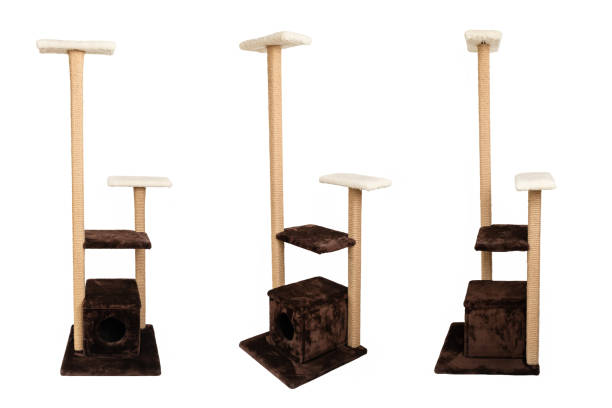Cat Litter Box Blues: Understanding the Health Dangers

Cat owners are no complete strangers to the everyday chore of digging their furry buddy's litter box. It's a regular task that's typically neglected, yet crucial for preserving a clean and healthy environment for both cats and their human buddies. However, what numerous pet owners might not realize is that there are concealed health risks connected with the litter box that can pose risks to both human beings and cats alike. From breathing concerns to parasitic infections, the litter box can harbor a variety of dangers that need cautious attention and management.
Among the most common health threats associated with the litter box is breathing concerns. Cat litter, especially clay-based ranges, can consist of fine dust particles that become air-borne when interrupted during scooping or when cats dig in the litter. These dust particles can be breathed in by both felines and humans, leading to respiratory inflammation and worsening conditions such as asthma or allergies. Sometimes, extended direct exposure to litter dust can even trigger more severe respiratory problems in both cats and their owners.
To lessen breathing threats, it's important to select low-dust or dust-free litter choices and to scoop the litter box in a well-ventilated location. Using a dust mask while cleaning up the litter box can likewise help in reducing exposure to airborne particles, particularly for individuals with respiratory sensitivities.
Another considerable health danger related to the litter box is the capacity for parasitic infections, especially from Toxoplasma gondii, a typical parasite discovered in feline feces. While the majority of healthy individuals may not experience symptoms if infected, pregnant women and individuals with weakened immune systems are at higher risk of developing severe complications, including birth defects and neurological disorders.
To minimize the risk of parasitic infections, pregnant women should avoid cleaning up the litter box completely and entrust this job to another home Clay Cat Litter member. Furthermore, all individuals ought to practice good hygiene habits, consisting of cleaning hands completely after dealing with the litter box or entering contact with cat feces, to reduce the threat of transmission.
Lots of business cat litters contain chemicals and ingredients that can posture health threats to both felines cat litter scoop and humans. For example, some fragrant litters may contain scents or necessary oils that can aggravate sensitive breathing systems or activate allergic responses. Additionally, clumping litters typically consist of sodium bentonite, a clay product that can broaden when ingested, leading to intestinal obstructions if consumed by cats.
To decrease chemical exposure, decide for odorless or naturally-scented litters made from biodegradable products such as paper, wood, or plant-based options. These environmentally friendly options are not just much safer for your cat's health however also much better for the environment.
The litter box environment offers an ideal breeding place for bacteria, including possibly harmful pathogens such as E. coli and Salmonella. These germs can pollute the litter box and surrounding areas, increasing the danger of infection for both cats and human beings. Cats can contract bacterial infections through direct contact with infected litter or by ingesting fecal matter throughout grooming, while humans can end up being infected through contact with infected surface areas or incorrectly washed hands.
To minimize the risk of bacterial contamination, it's necessary to clean the litter box frequently using warm water and mild cleaning agent, as well as to sanitize the surrounding area to prevent the spread of germs. Furthermore, practicing excellent hand health, including cleaning hands thoroughly after dealing with the litter box or entering contact with feline feces, can help cat litter alternatives decrease the risk of bacterial transmission.
While the litter box might appear like a mundane element of cat ownership, it's important to acknowledge the prospective health threats related to this seemingly innocuous component. From respiratory problems to parasitic infections and bacterial contamination, the litter box can harbor a range of hazards that require mindful attention and management. By taking proactive measures to reduce direct exposure to these risks, cat owners can produce a more secure and healthier environment for both their feline companions and themselves.